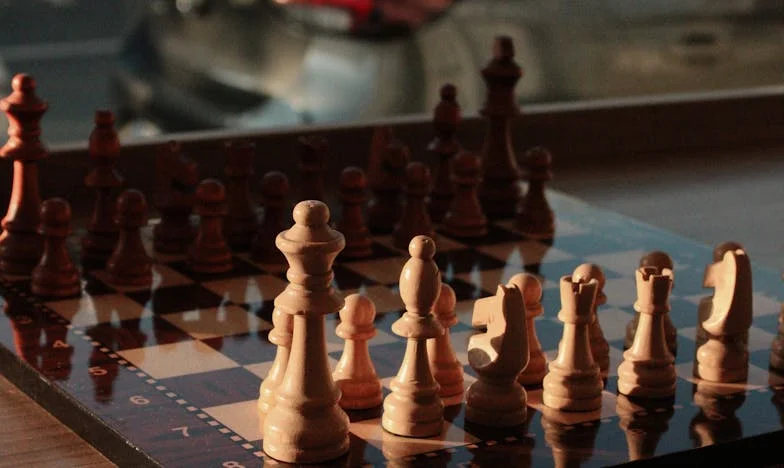“I’m Not Your Kid’s Babysitter!”: How Old Resentment Tore My Sister and Me Apart
“I told you, Anna, I’m not your kid’s babysitter!” Kate’s voice cut through the August air like a knife, echoing over the hum of Mom’s old box fan. I remember the way her blue eyes flashed, arms crossed, the same stubborn set to her jaw she’d had since we were kids. But this time, the words hit harder, because my five-year-old daughter, Zoe, was standing right behind me, clutching the hem of my shirt.
The living room was thick with tension. Mom looked up from her crossword, sighing, “Kate, please. Just for one afternoon. Anna has a job interview. We all need to pull together—”
Kate threw up her hands. “I’m not responsible for Anna’s choices! She’s the one who decided to have a kid at twenty-two. I’m not putting my life on hold—again.”
Zoe’s eyes were wide, searching my face for reassurance. My chest burned. I knelt, brushing a strand of hair from her cheek. “It’s okay, sweetie. We’ll figure something out.”
But inside I was crumbling. I wanted to scream, to beg, to remind Kate of all the times I’d covered for her—when she crashed Mom’s car and I took the blame, when she was grounded and I snuck her phone back. But none of that mattered now. She saw me as the irresponsible one, the burden, the single mom who made her life harder.
The truth is, it wasn’t always like this. We’d been inseparable as kids, building pillow forts and whispering secrets about the neighbors. Even after Dad left, we clung to each other. But somewhere between my pregnancy and Kate’s college acceptance letter, everything changed. She resented the way Mom’s attention shifted to me when Zoe was born, the way I needed help when she wanted freedom.
After that day, our words became cold, mechanical. Holidays were tense, her gifts for Zoe perfunctory. I tried to patch things, reaching out with invitations, updates, even apologies I didn’t owe. Kate answered with silence, or worse, polite indifference.
Years passed. I juggled two jobs, daycare, parent-teacher meetings, while Kate moved across the country for grad school. Our lives grew further apart. Mom’s health started to slip, and I was the one taking her to appointments, managing medications, watching the clock tick down on my unpaid leave.
One night, after a long shift waiting tables, I came home to find Zoe sitting alone on the porch steps, knees pulled to her chest. “Why doesn’t Aunt Kate like us?” she whispered.
I sat beside her, wrapping my arms around her shivering shoulders. “It’s not that she doesn’t like us. Sometimes grown-ups… they just get stuck in their own stuff. It’s not about you, baby.”
But I wondered. Was it about me?
When Mom died suddenly last spring—stroke, no warning—I called Kate, my hands shaking, voice hoarse from crying. She answered on the first ring. For a moment, I heard a hitch in her breath, a softness I hadn’t heard in years. She said she’d fly in for the funeral, that she’d stay a few days, help clean out the house. I thought maybe, finally, we’d have a chance to talk.
But grief doesn’t heal old wounds; sometimes it rips them wider. On the day we sorted through Mom’s things, tension erupted over the smallest things: who got the photo albums, who would sell the house. When I found the old Polaroid of us in matching Halloween costumes, I pressed it into her palm. “Remember when we were witches together? We swore we’d always stick together.”
Kate’s eyes flicked to mine, then away. “People grow up, Anna. Things change.”
I bit back tears. “But we’re still sisters, aren’t we?”
She shrugged, voice brittle. “I don’t know what you want from me.”
Later that night, after Zoe fell asleep and the house was quiet, I found Kate in the backyard, smoking a cigarette she’d stolen from Mom’s old stash. The distant whine of sirens drifted through the humid air. I sat on the steps, feeling the ache of everything unsaid.
“I didn’t choose this, you know,” I whispered. “To be Mom’s caretaker. To do it all alone.”
Kate blew out smoke, her profile hard. “Neither did I. You think it was easy watching you and Mom become this—team? I felt invisible.”
The words stunned me. “I never wanted you to feel that way.”
She wiped a tear away, angry with herself for letting it show. “Yeah, well. I did.”
For the first time, I saw her—not as my stubborn sister, but as a kid who’d lost her dad, her family, her place. Maybe we both lost something that day, years ago, when she refused to help.
The next morning, Kate left early. She hugged Zoe, leaving a crisp bill in her hand, a feeble attempt at connection. She hugged me, too—awkward, stiff. “Take care of yourself,” she said. “And her.”
We’re back to silence now. Sometimes I see her posts on Facebook: New York skyline, a dog, brunch with friends. Sometimes I think about calling, about saying the words we never could. But the old hurt sits heavy in my chest.
Some nights, I stare at the ceiling and wonder—how many families are like ours? How many sisters lose each other, not over one argument, but over years of misunderstanding and pain?
Maybe, someday, we’ll find our way back. But for now, I tuck Zoe in, hold her close, and do my best.
Do you think it’s possible to forgive someone who never says they’re sorry? Or am I just holding on to something that’s already gone?
